We are just a few days away from Frappeverse 2025, and the team has been heads down working on some exciting features and improvements all of which will be showcased during the two days of the event. Do register if you haven't already!
Table of Contents
Editable Dimensions in Child Tables
Accounting dimensions are editable by default in submitted documents. But, due to a bug in a recent change dimensions in the child table became uneditable. This has been fixed.
Contributed by: Ravi Bharathi
Major changes in Advance payments accounting
Advance Payment Ledger will now be used to track payments made against Sales/Purchase Orders. This was done to allow reconciliation of such payments from within the closed fiscal year.
Contributed by: Lakshit Jain
Batchwise Subscription
Daily invoice subscription processing will now be done in batches of 500. This is to avoid a timeout on systems with large number of subscriptions.
Contributed by: Ravi Bharathi
Batchwise Bank Reconciliation
Auto Reconcile option in Bank Reconciliation was timing out on large datasets. This will now happen in batches of 1000.
Contributed by: Ravi Bharathi
Broken auto-generation of revaluation documents
ERPNext has a feature to auto-generate Exchange Rate Revaluation documents on varying frequencies (Daily, Weekly & Monthly), of which, monthly frequency was broken due to a bug. This has been fixed.
Contributed by: Emmanuel Mwendwa

Serial Number and Batch Traceability Report
Backward Traceability (where it came from) Backward traceability helps users identify how a specific serial number or batch was manufactured, including the components used in producing the finished goods. It also shows which supplier provided the raw materials associated with that specific serial number or batch.
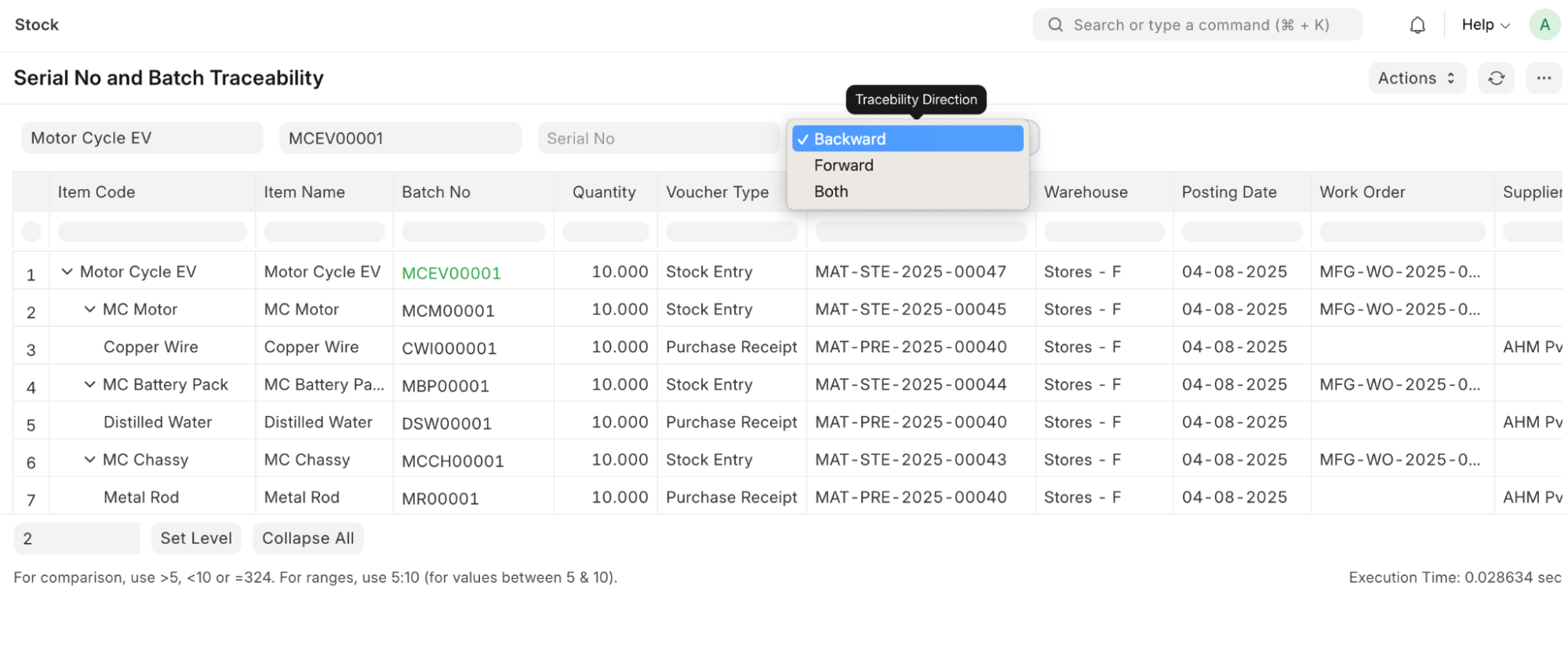
Forward Traceability (where it is used) Forward traceability enables users to track the location of a specific serial number or batch throughout the manufacturing process of finished goods. It also provides information about the customer to whom this serial number or batch was sold.
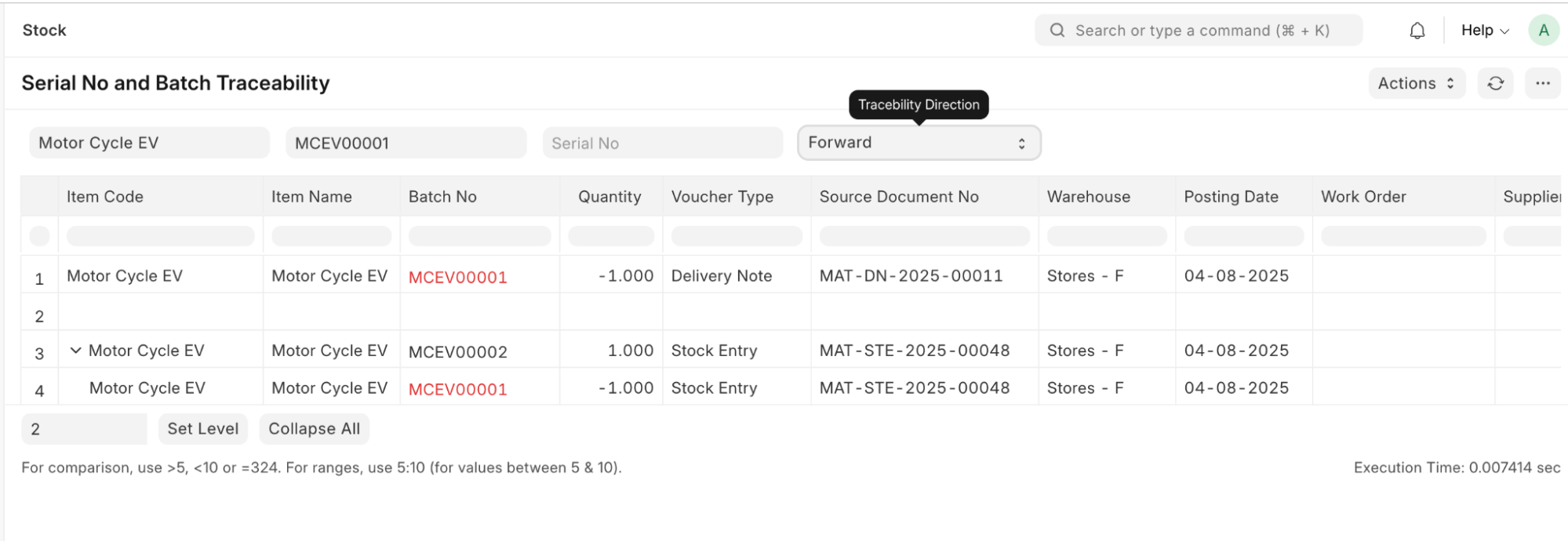
Link vendor invoices in the LCV
Users can link vendor invoices related to freight and excise duty to the LCV. Users will refer to these costs when calculating the LCV amount.
Workstation Operating Cost Component
In the workstation, we had hardcoded operating cost components such as electricity cost, consumables, rent, and wages. So, if users wanted to add a new component, they had no option other than customizing the system to add a custom field.
To fix this issue, we added a table where users can dynamically add operating cost components with their respective costs.
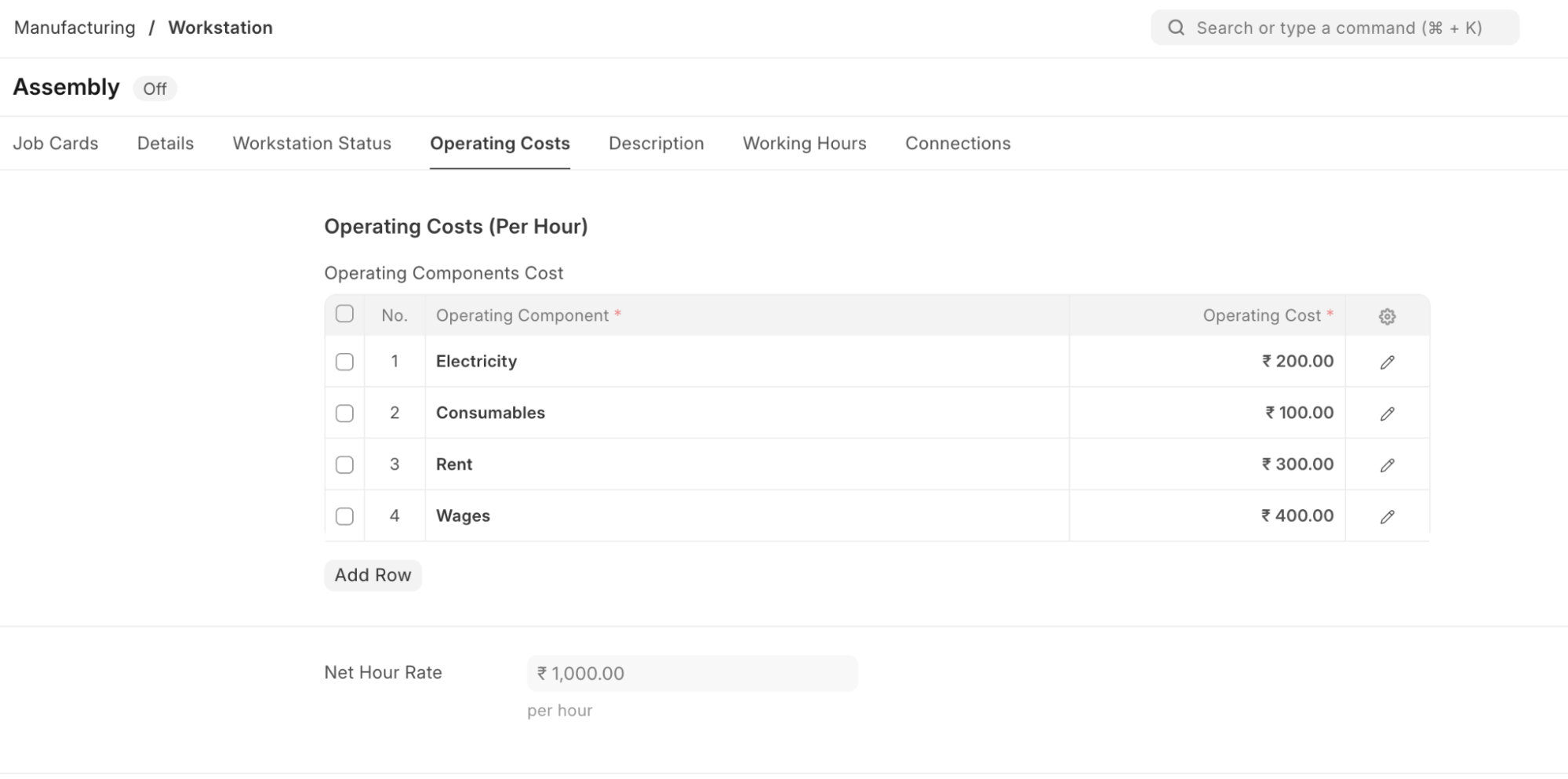
Previously, there was no option to define expense accounts for each component, and the system was using the default Default Provisional Account. Now, users can assign expense accounts to each component on a company-wise basis.
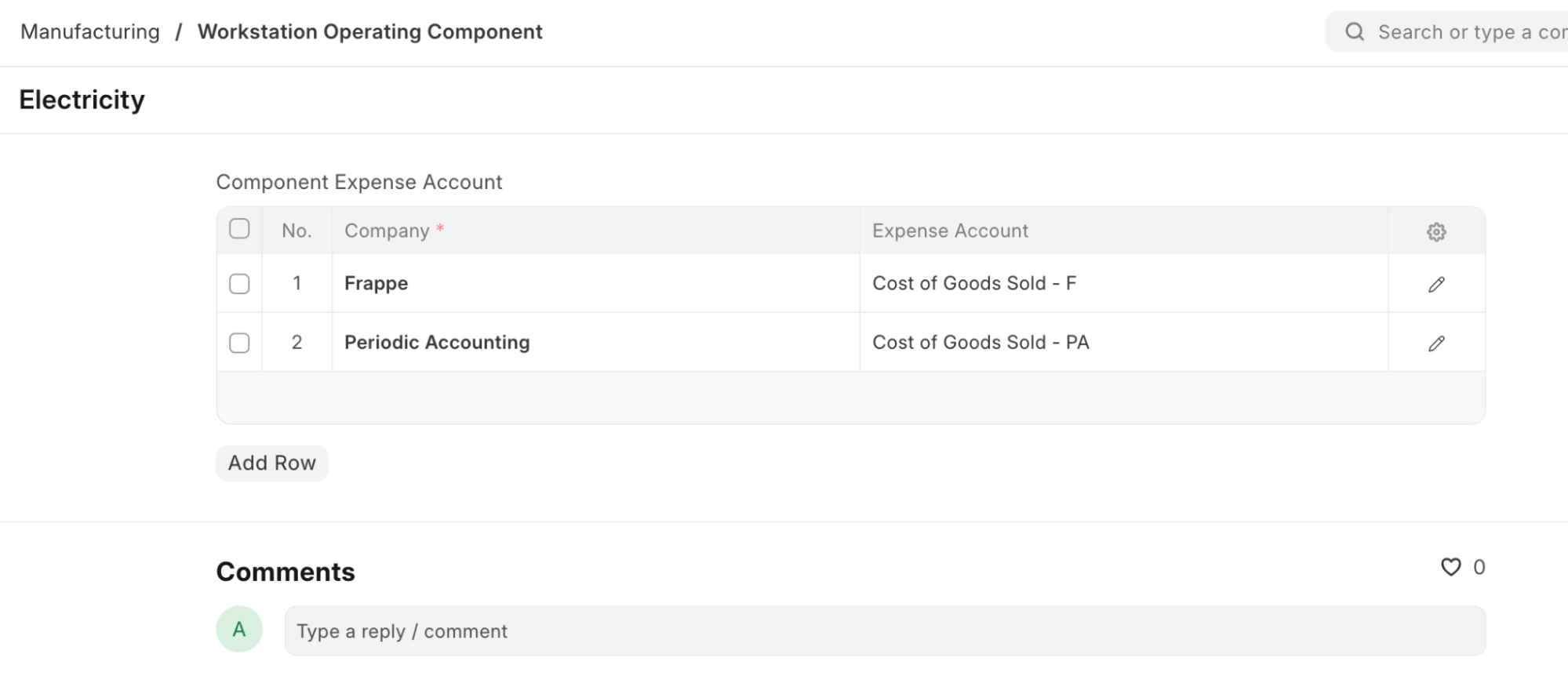

Show Income Tax Breakup if added via Additional Salary
Previously, when Income Tax was added via Additional Salary with Overwrite Salary Structure Amount enabled, the detailed Income Tax Breakup was missing from the Salary Slip. This caused confusion in future tax calculations. It is now ensured that the income tax breakup section appears correctly and that the overwritten amount is accurately reflected in the monthly, yearly, and overall tax computation fields. #3449
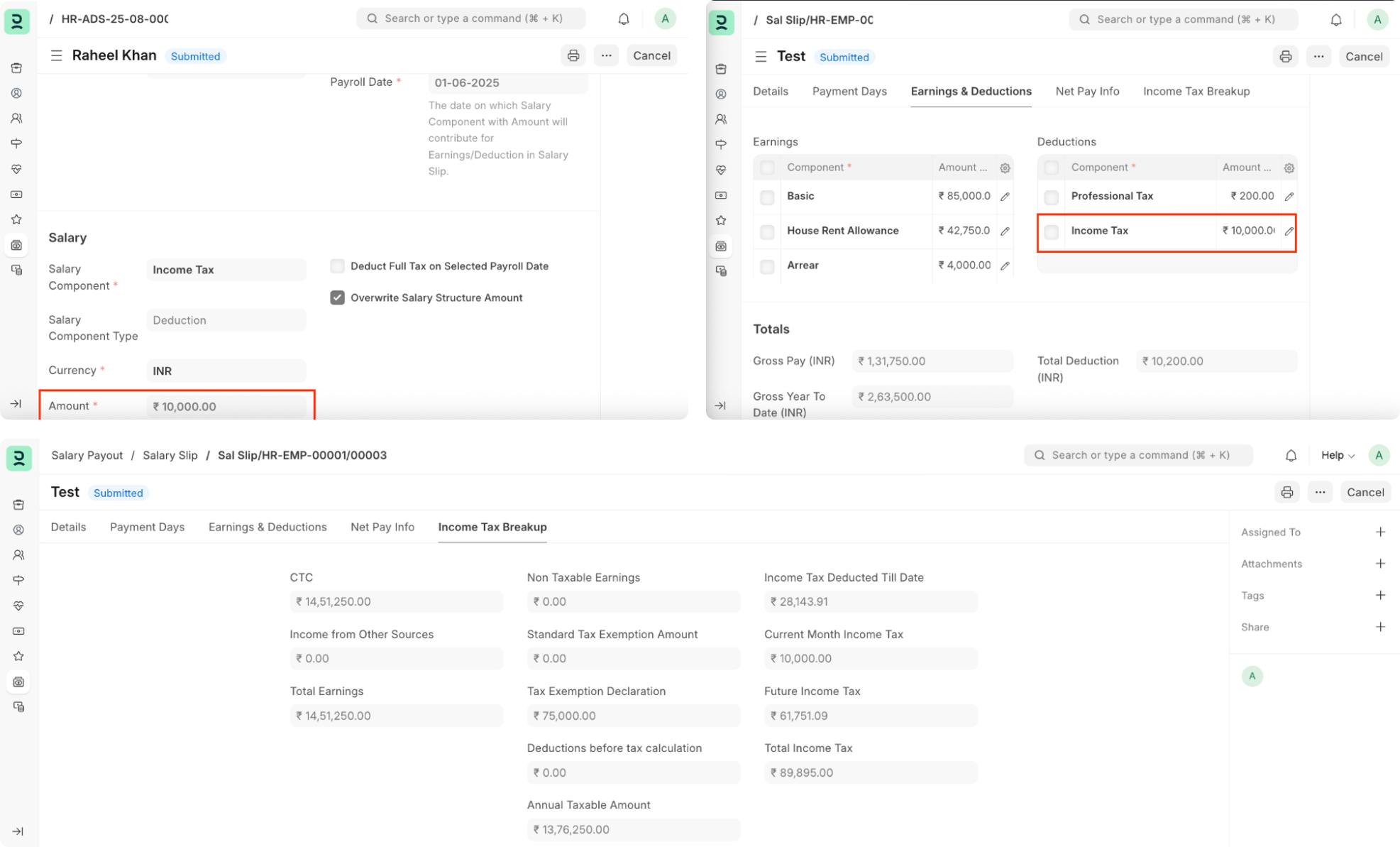
Bug Fixes:
Fetch details of Timesheet based Salary Component The problem was when the salary component based on timesheet is added in salary slip, it doesn't fetch all the data related to that component. In case of Income tax component (timesheet based), it does not fetch Is Tax Applicable from component master leading to missing calculation of income tax. #3508. Contributed by: Venkatesh
Submit payroll entry while creating salary slips in background job. #3508. Contributed by: Venkatesh

Easily View and Purge Binlogs
Dedicated server users often run into issues with binlogs growing quickly during heavy transactions. Until now, you had to contact support to purge them or adjust retention settings.
We’ve now added a Binlog Manager in the dashboard, so you can view and purge binlogs yourself — no more back-and-forth with support.
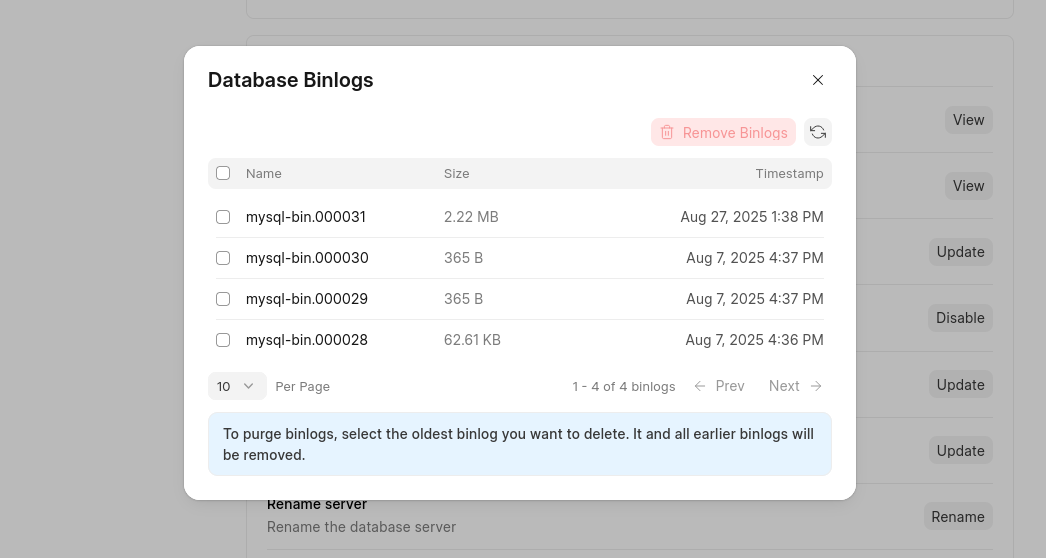
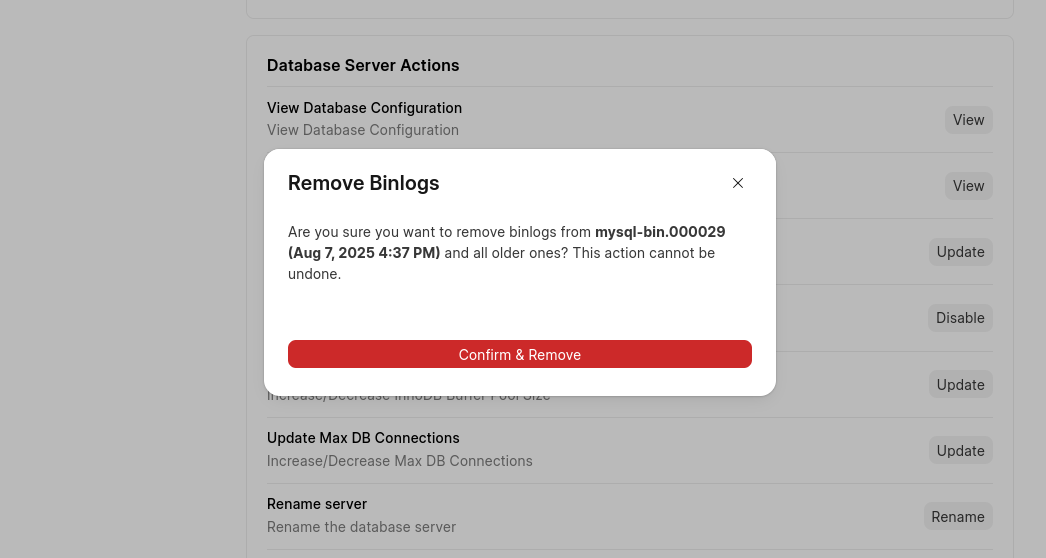
You can now reduce binlog retention right from the dashboard.
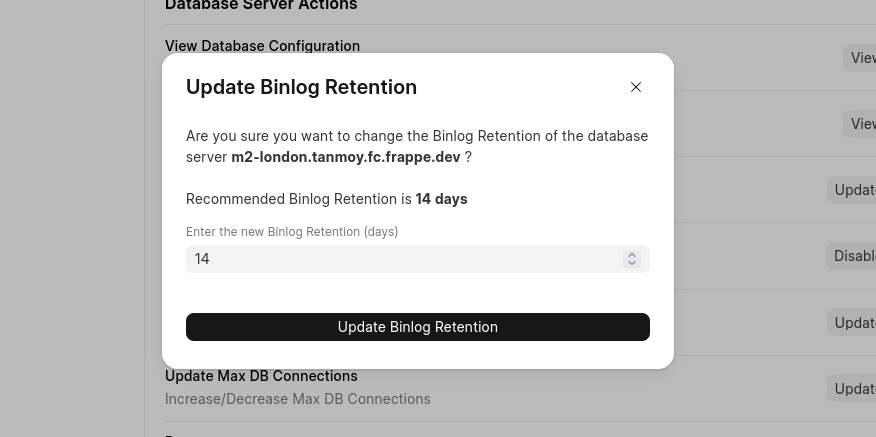
Please check the documentation to know more about that.
Restoration CLI
We often hear from users and partners trying to migrate large sites to Frappe Cloud. If your private file backups are over 5GB, uploading them through the UI becomes a hassle — and usually ends up in a support ticket.
To make this smoother, we’re introducing an Interactive CLI tool for uploading backup files and restoring sites. This should make migrations to FC faster and more straightforward.
Please check the documentation to know more about that.

Server Storage Breakdown
Last month, we added storage breakdown for the Database Server. But many users were still unsure about what's using space on the App Server.
It’s not just your site data — Docker images, backups, logs, and archived folders all add up.
Now, with App Server Storage Breakdown, you can see usage at the bench level and know exactly where your storage is going.
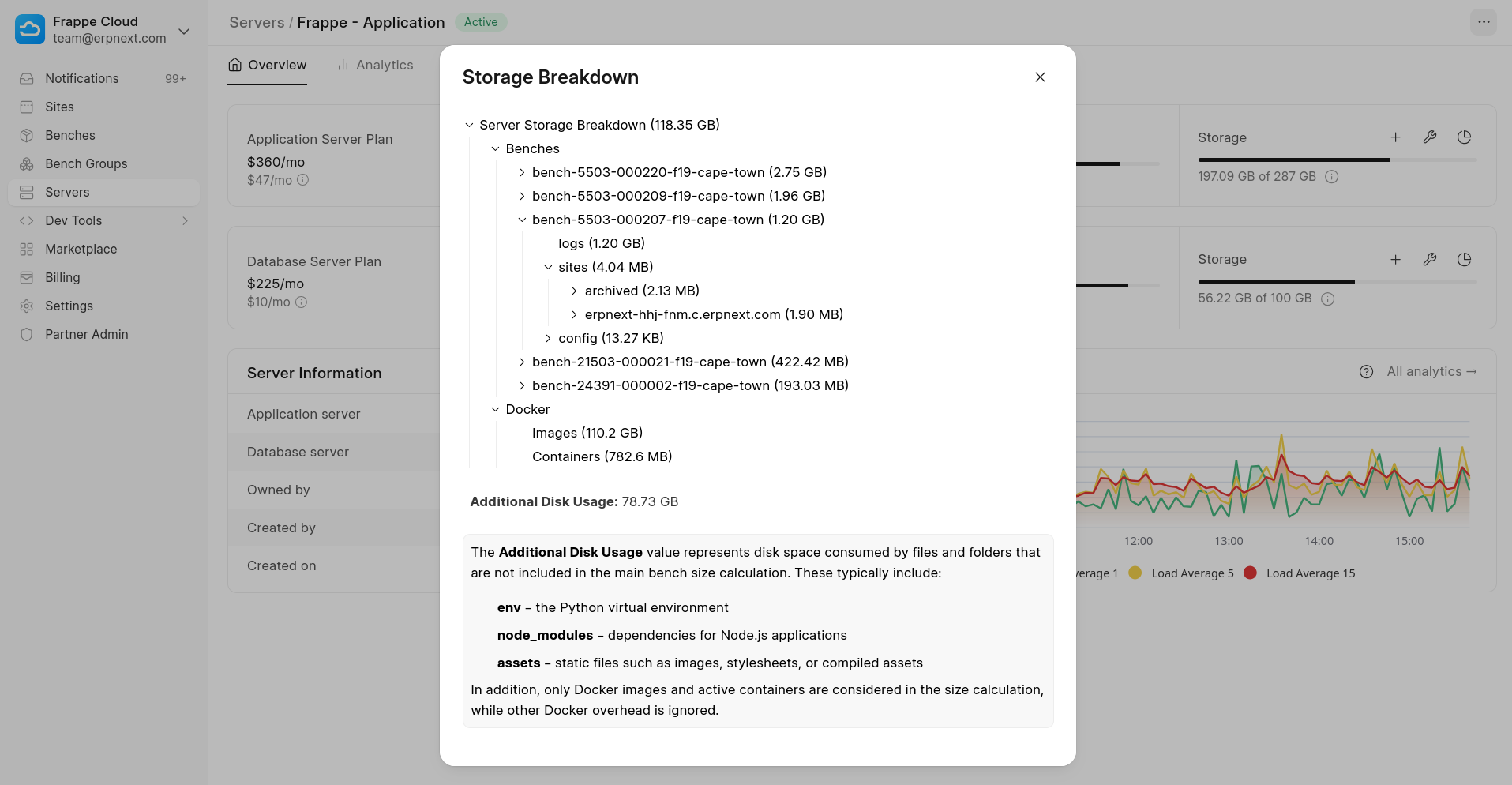
Server Activity Log
We’ve added a Server Activity Log to help you track key server-related actions. This includes: - Incident History - Data disk size changes — who increased it, when, and by how much This log acts as an audit trail, giving you better visibility and accountability for server activities.


New Site Analytics
We’ve added two new charts to the existing Site Advanced Analytics to help you better understand and debug performance issues:
Background Report Duration: Identify which background reports are taking the most time to generate. Long-running reports can signal potential performance bottlenecks.

Run Doc Method Duration: If you’re using rundocmethod in your custom app, this chart helps you see which specific methods are slow -- something that wasn’t visible before.


PWA
Frappe Learning now has a PWA. You can install it from your mobile browser and from then on access it as an app from your mobile phone
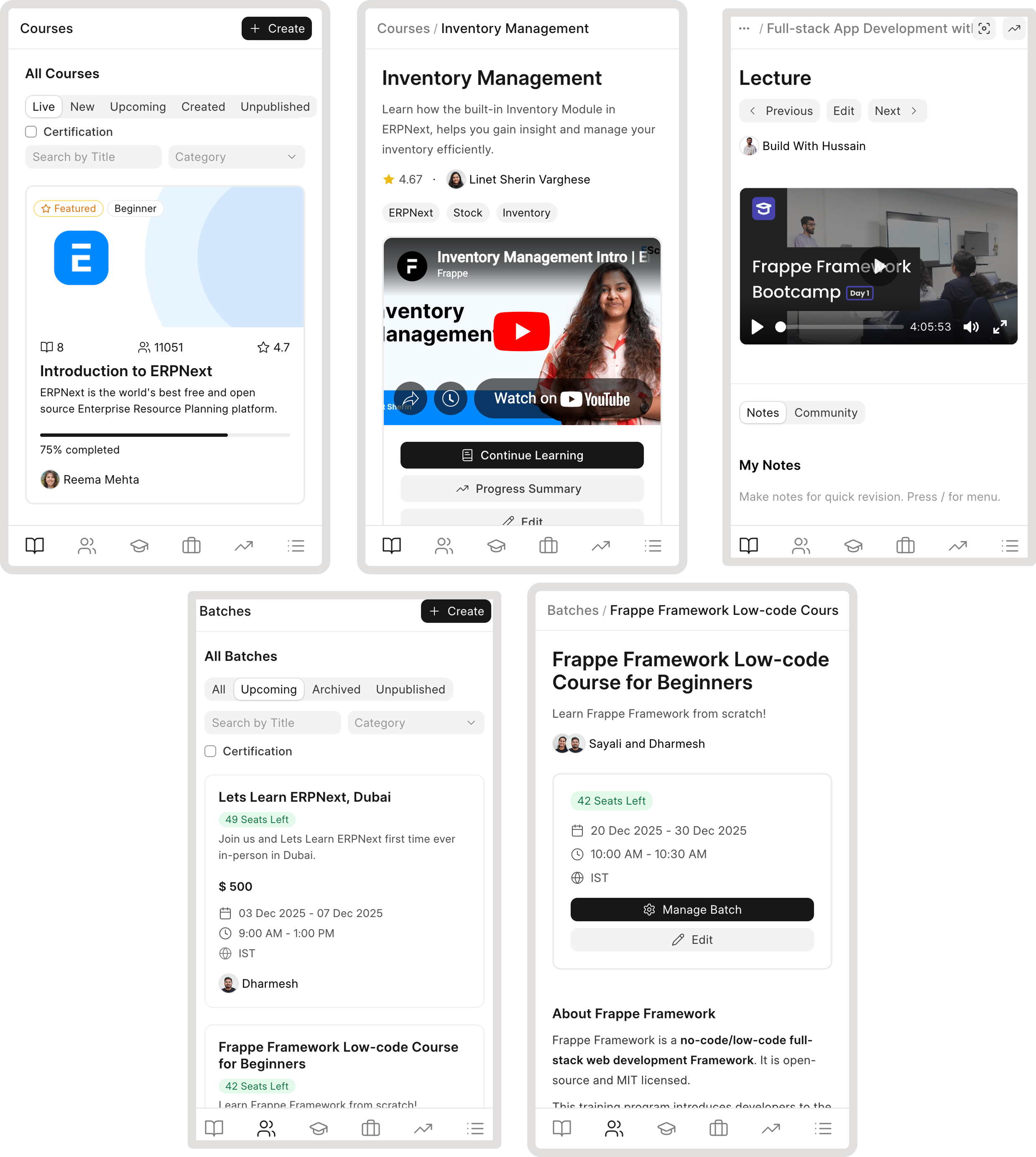
Learning Path
Learning Path has been refactored. Previously, there was a setting to enable Programs; if enabled, Programs was shown to students as a replacement for Courses. Additionally, by default, the order of courses was enforced for all programs.
This has now changed. When creating programs, instructors can configure whether to enforce the order or not. Also, they can now configure whether Programs are published. Published programs will be visible to all students. They can then enroll in the program and proceed with the courses.
However, if an instructor prefers not to keep the Program public but rather manually enroll certain selected students, they can do so as well. They can also see a Progress Summary of all programs.

The long-awaited integration with the Frappe Framework is here! Now, opening up any attachment in Desk will allow you to upload files from Drive. This is still in beta - you can try it out here.
We made a variety of UX improvements; in particular improving the public preview. Now, people can comment on your files even without having an account in Drive.
Most of the work this month was in Writer - we continued to add a host of features.
We’ve added viewing modes - you can have wide-body text, or perhaps clear out the distracting sidebar with Minimal mode. You can lock files, to prevent accidental editing.
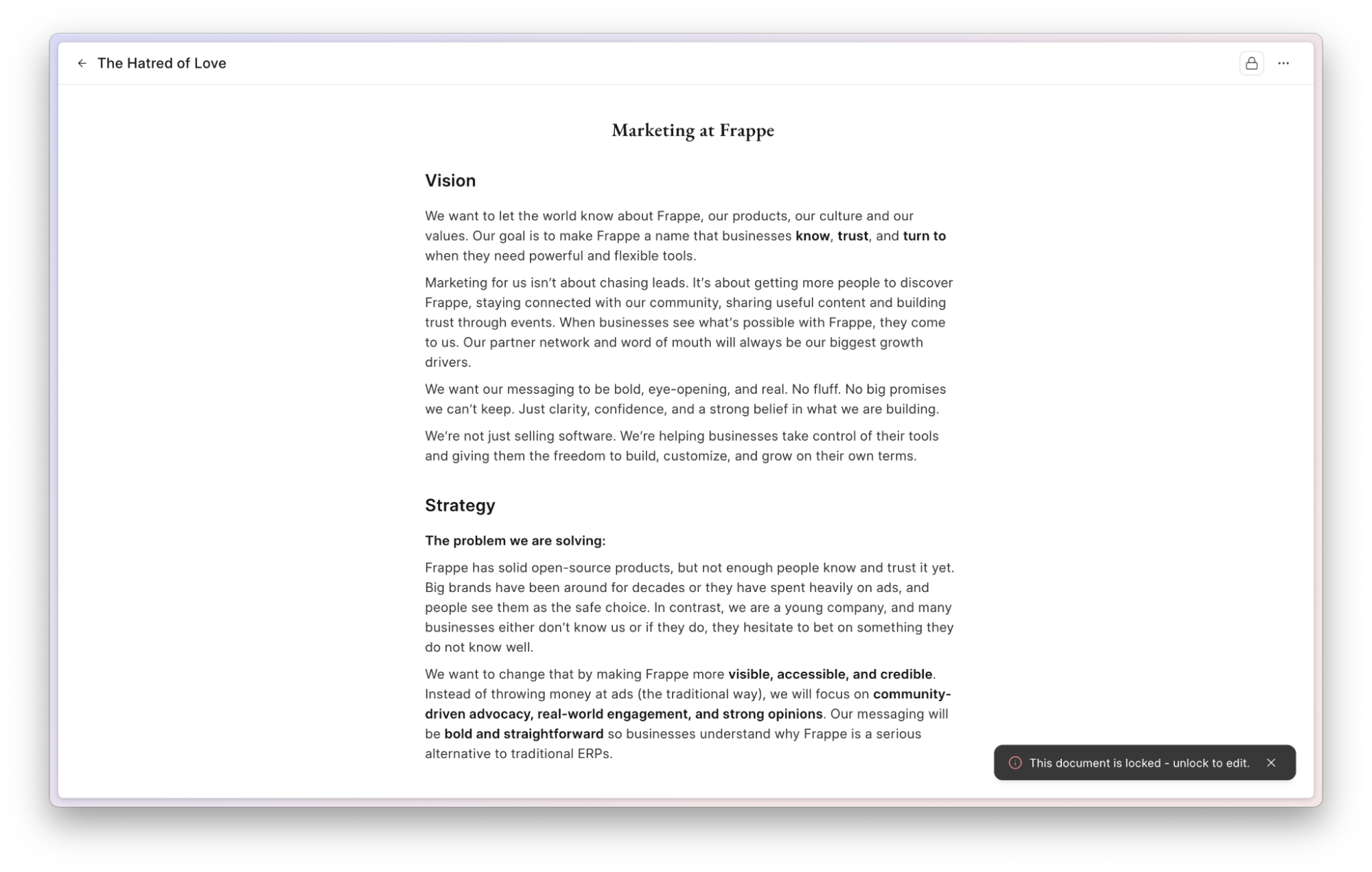
Version history is back, stronger than ever! You can configure how frequent automated snapshots are taken, and also store manual versioning.
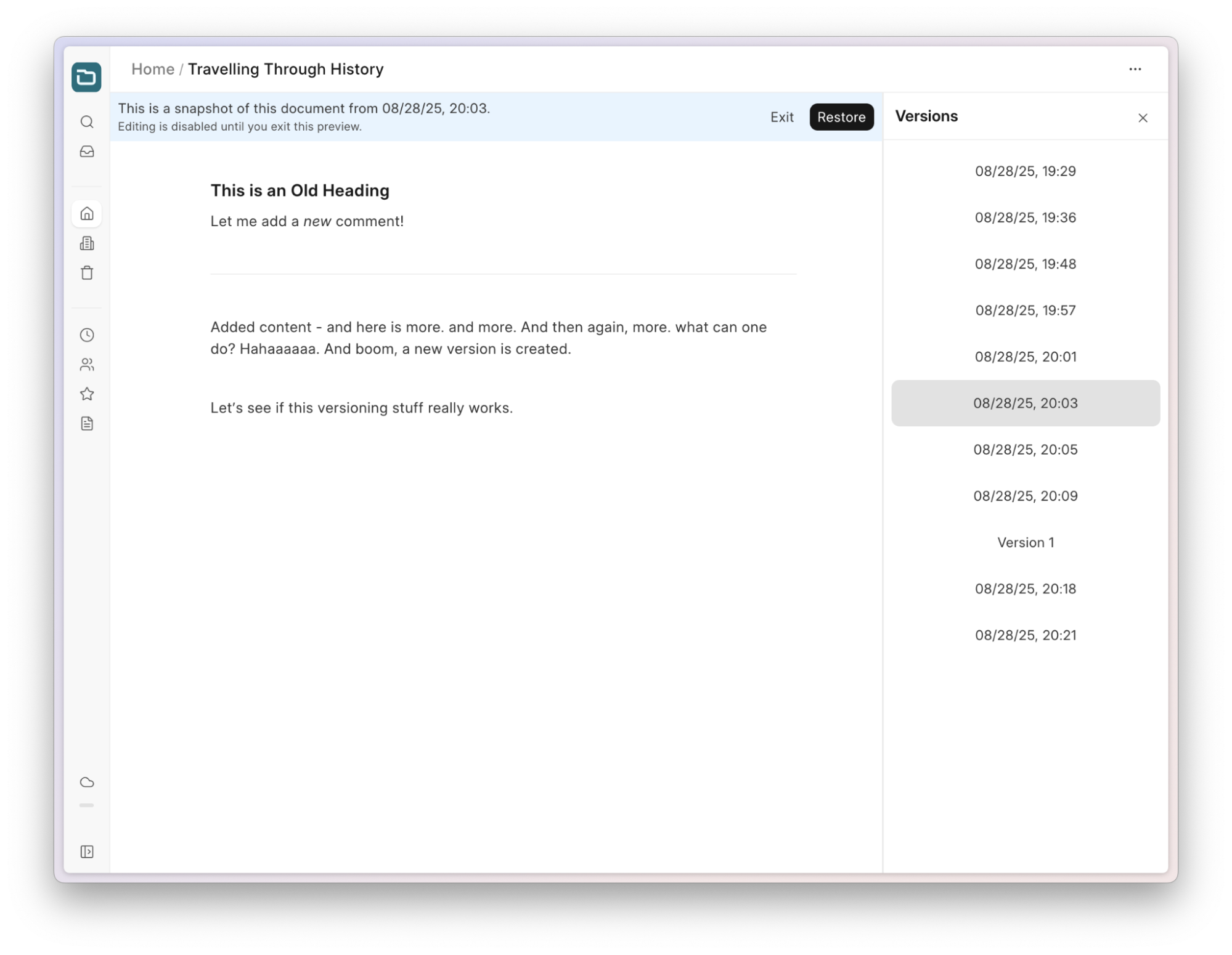
Previously, only Drive Documents could be edited in Writer. Now, you can edit all text-based files! Here’s how opening a Markdown file looks in Drive now:
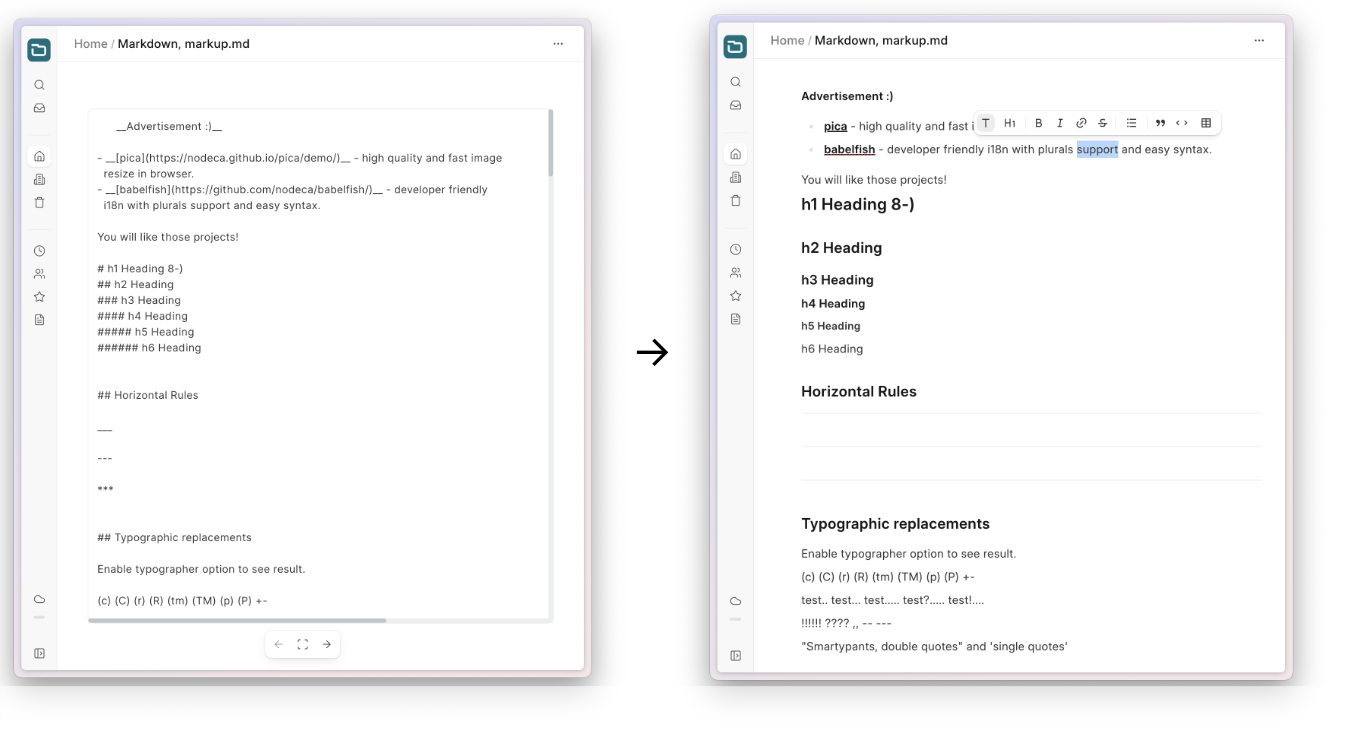
Writer settings allows you to configure defaults in the editor, and customize it to the look and feel you like.
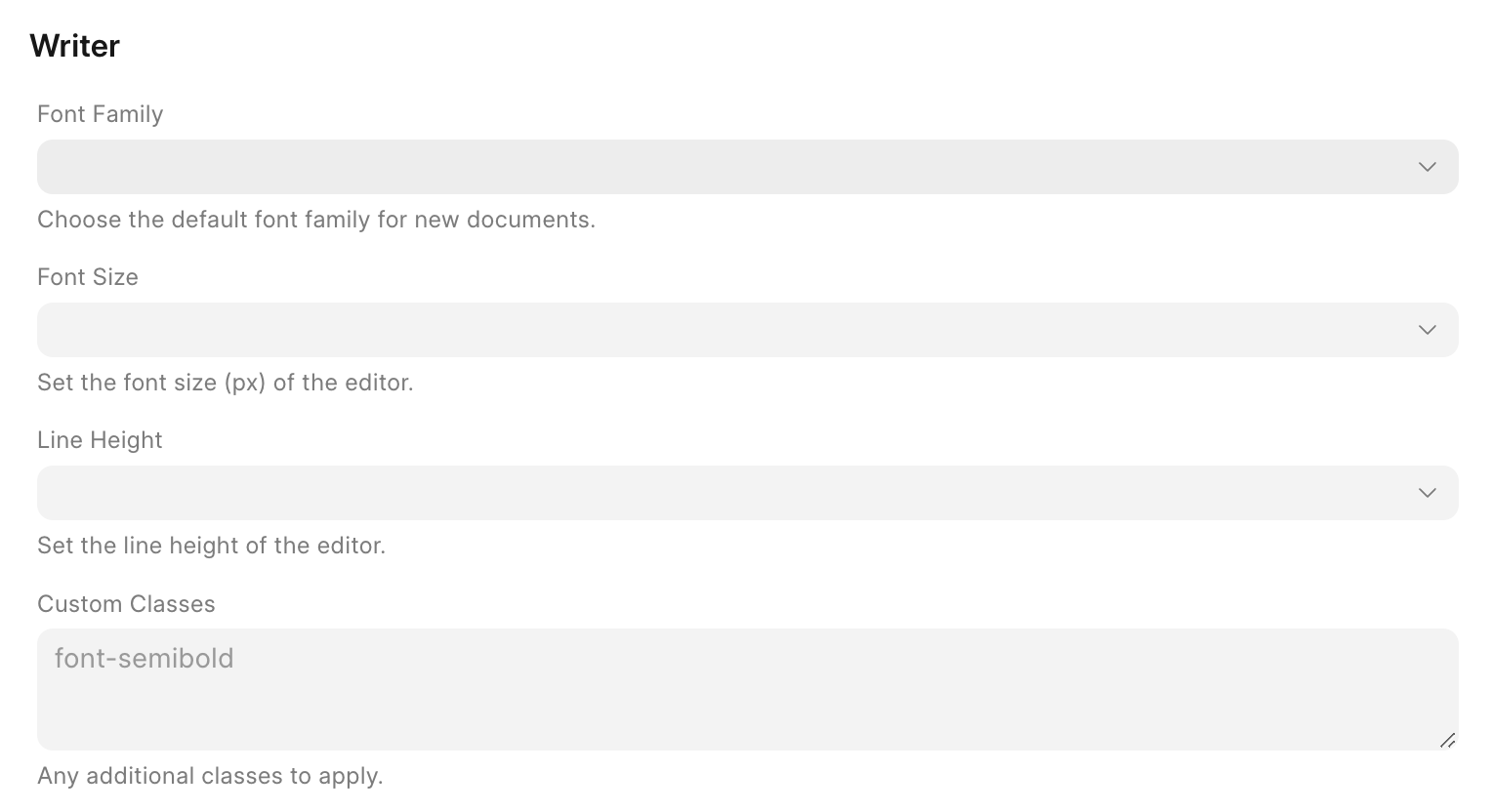

And that's it 👋
That was all for this month. Hoping to see you all at Frappeverse 2025!



